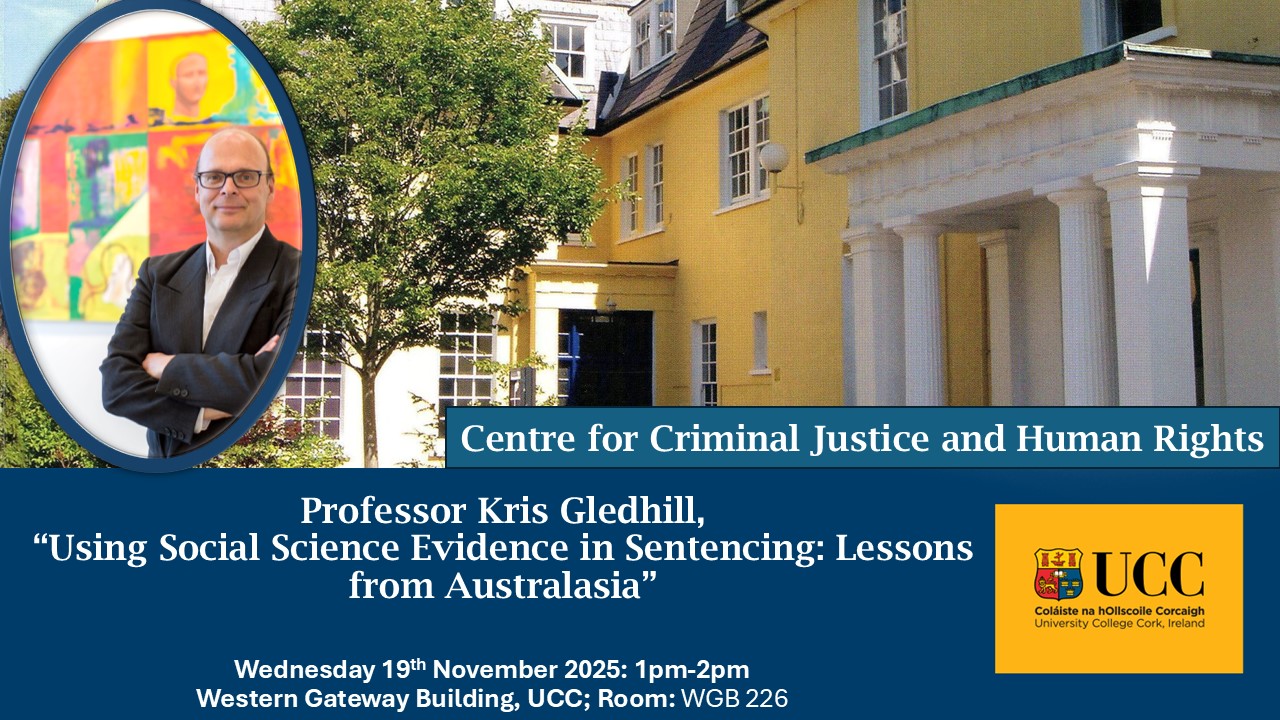CCJHR Lunchtime Seminar: Professor Kris Gledhill (19/11/25)

The Centre for Criminal Justice and Human Rights is delighted to announce a lunchtime seminar featuring Professor Kris Gledhill from AUT Law School. He will be presenting a paper titled "Using Social Science Evidence in Sentencing: Lessons from Australasia".
The lunchtime seminar will take place on Wednesday 19th November at 1pm-2pm in Room WGB 226 in the Western Gateway Building, UCC.
Abstract
In various common law jurisdictions, sentencing law is becoming more structured, including through legislative intervention. One model is shown through Australasian legislation such as the Crimes (Sentencing Procedure) Act 1999 (NSW) and the Sentencing Act 2002 (NZ), which set out the purposes for which a sentence may be imposed, and set out principles, aggravating and mitigating features that must be taken into account. See also now the Sentencing Act 2020 (UK) for England and Wales.
The statutory purposes of sentencing reflect political and jurisprudential theory, including utilitarian aims of securing desistance from crime and deontological aims of responding to breaches of obligations to society. These rest on assumptions about human behaviour, including that people assess costs and benefits before choosing to commit crime. However, social science research illustrates that prison populations tend to include a higher percentage of people with mental health and addiction issues than the general population, which challenge the validity of these assumptions.
This paper collates the use of such social science evidence in recent appellate judgments in Australia and New Zealand, notes the differences between the jurisdictions and analyses the propriety of the developments and the limits placed upon them.
Speaker Biography
Kris Gledhill practised at the Bar in London for half his career, doing criminal trials and appeals, miscarriage of justice appeals, and representing detainees in prisons and psychiatric hospitals; he appeared in multiple reported cases. The second half of his career involved relocation to New Zealand and a move into academia, teaching and writing mainly in criminal and human rights areas; he is now a Professor of Law. He is keen on research that might be of assistance to the legal profession and judiciary in developing the law, and is currently engaged in a project seeking to promote rational approaches to social science evidence in matters of sentencing.
For more on this story contact:
Dr. Luke Noonan, Acting Director of the CCJHR at luke.noonan@ucc.ie
